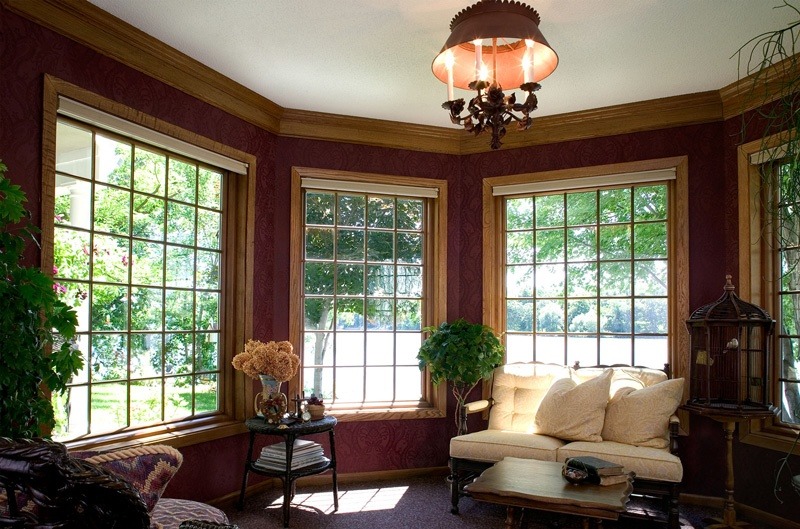


Years ago, window sashes and frames were always made from wood. If you shop for windows today, however, you will find windows made from numerous materials, including aluminum, vinyl, wood, and composites. Does your choice really matter? Are some window materials better than others, and which one is your best choice? Keep reading to learn why choosing the best window material for your Indianapolis home is so important.
Cracks, Warping, and Leaks
If you have old wooden windows in your Indianapolis home, look at the frames carefully. You will probably see some areas where the frames are cracked or beginning to warp away from the window glass. These cracks and warped areas can lead to air leaks and drafts, which certainly don’t make for a comfortable home. Vinyl windows have similar issues. No, vinyl won’t rot like wood, but it doesn’t do particularly well in the varied Indianapolis climate. Vinyl tends to crack and bend in response to frequent changes in temperature, leading to similar air leaks to those seen in wooden windows.
To prevent cracks, warping, and the dreaded draftiness that follows, opt for windows made from Fibrex® composite. It looks like wood, but it resists warping and cracking so your windows remain leak-free for many years.
Energy-Efficiency
The degree to which a material resists letting heat pass through it is referred to as that material’s R-value. Window materials with a high R-value resist heat transfer, or in other words, they are good insulators. Aluminum is a window material with a relatively low R-value. It’s a poor insulator; heat passes right through it. As such, aluminum windows are not very energy-efficient. Wood and wood composite replacement windows are much more efficient since those have higher R-values. Your home will stay warmer in the winter and cooler in the summer, and your energy bills will be lower year-round with wood or wood composite windows.
Ease of Maintenance
How much time are you willing to dedicate to caring for your windows? For most busy homeowners, the answer is “not much.” Traditional wooden windows, as attractive and efficient as they might be, require a lot of upkeep. They need to be painted or stained often to prevent rot, and there’s also a risk of termites and carpenter ants. Vinyl windows are often marketed as a lower-maintenance alternative. While it is true that vinyl windows require less maintenance than wood windows, the cracking and warping issues discussed above make them a poor choice for an Indianapolis home. Fibrex composite windows are as low-maintenance as vinyl windows, but without the warping concerns.
Life Expectancy
Even when you work with the best window replacement company, replacing your windows is not a task you want to repeat in another five or six years. So, make sure you look for a window material with a long life expectancy. Cheap vinyl or aluminum windows from the home improvement store might only last a few years. Those made from higher-end window materials like Fibrex can last several decades. Fibrex even comes with a 20-year warranty.
If you keep maintenance needs, life expectancy, energy-efficiency, and the potential for leaks in mind as you shop for windows, you’re bound to discover windows that meet your needs. Contact Renewal by Andersen to learn more about our window materials or to schedule a free consultation in your Indianapolis home.